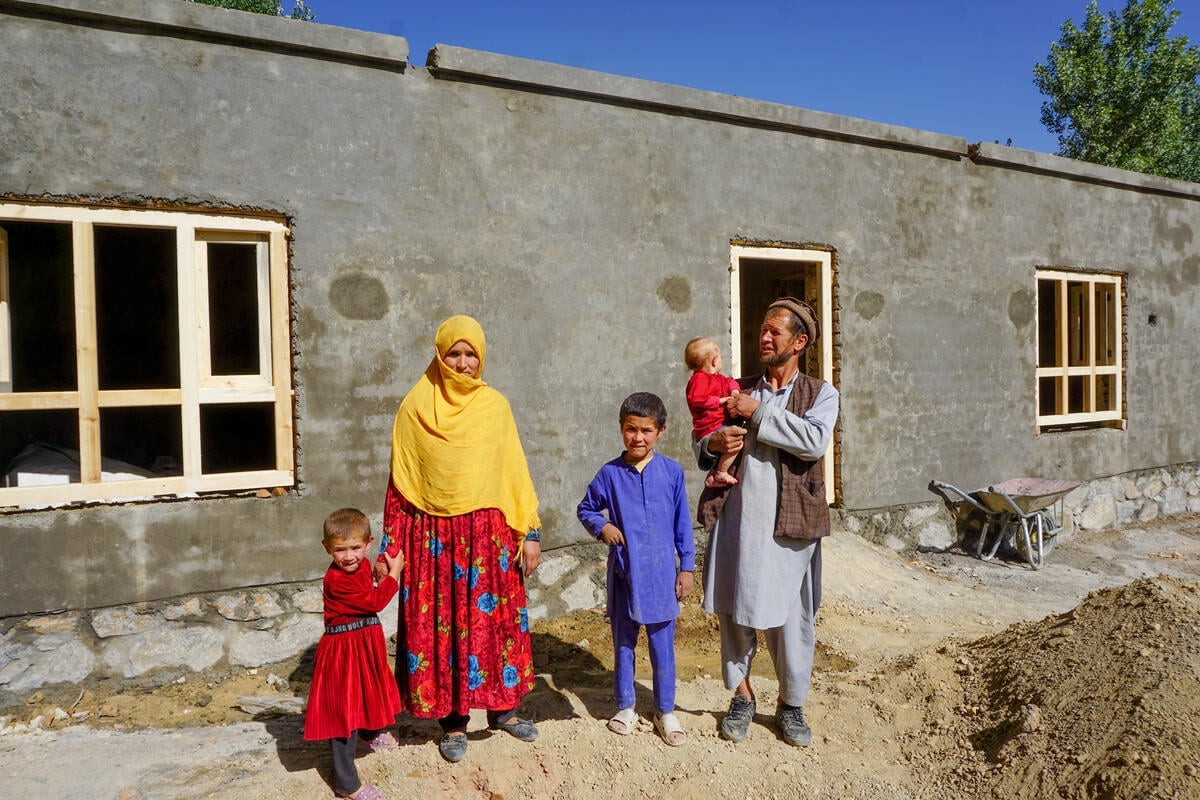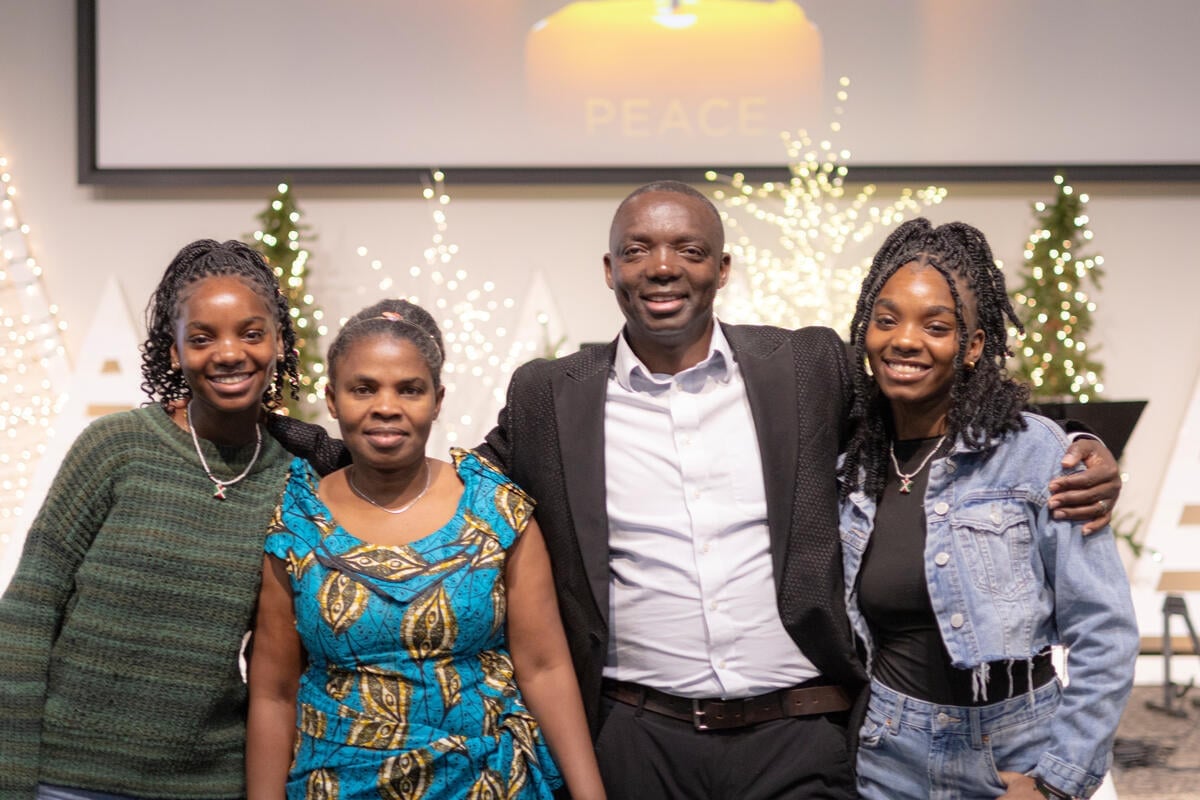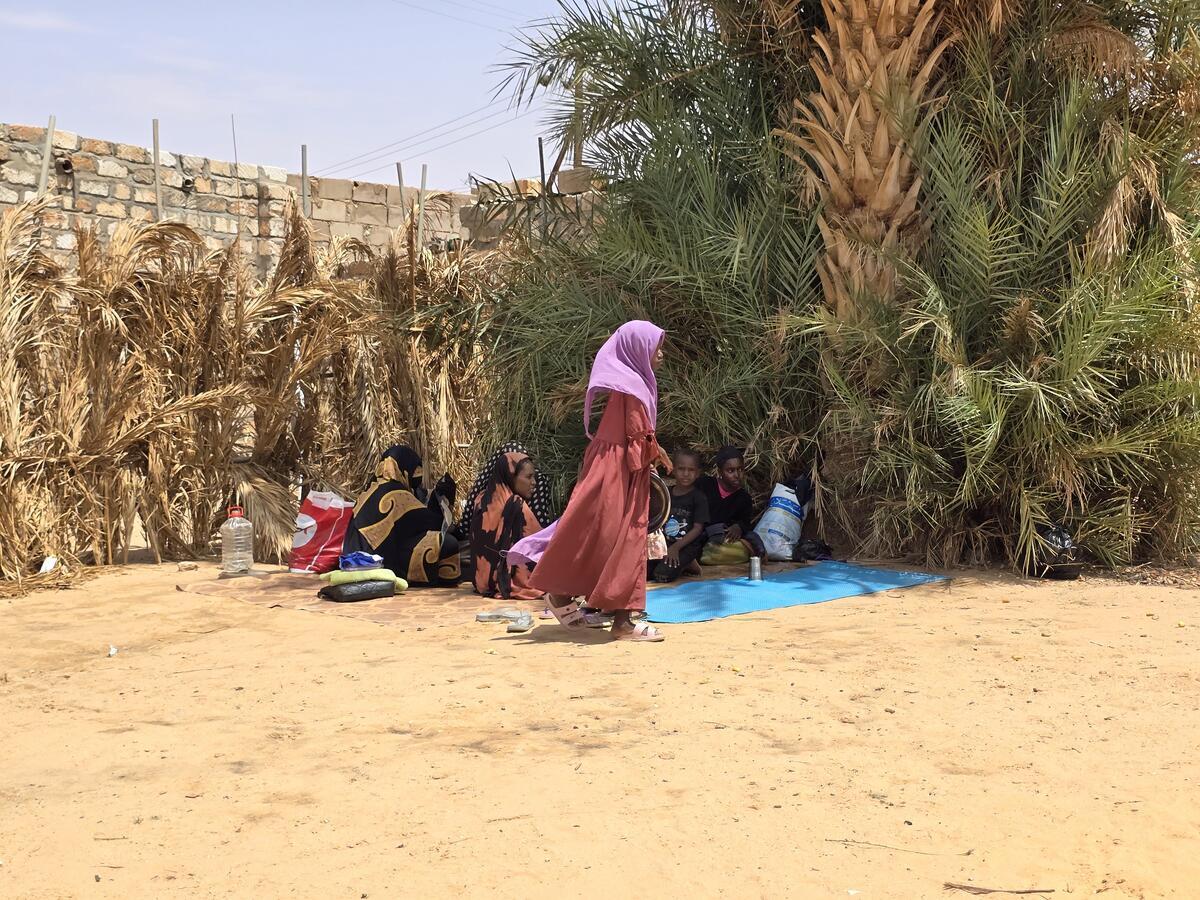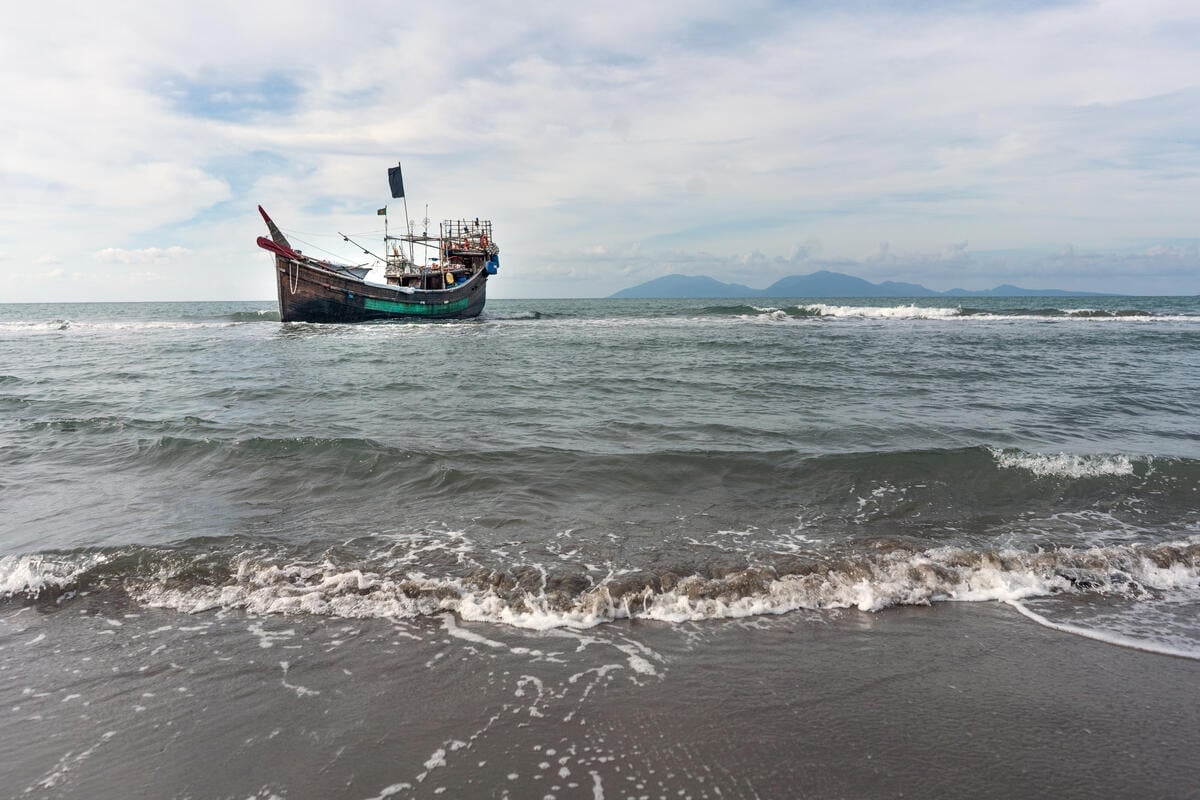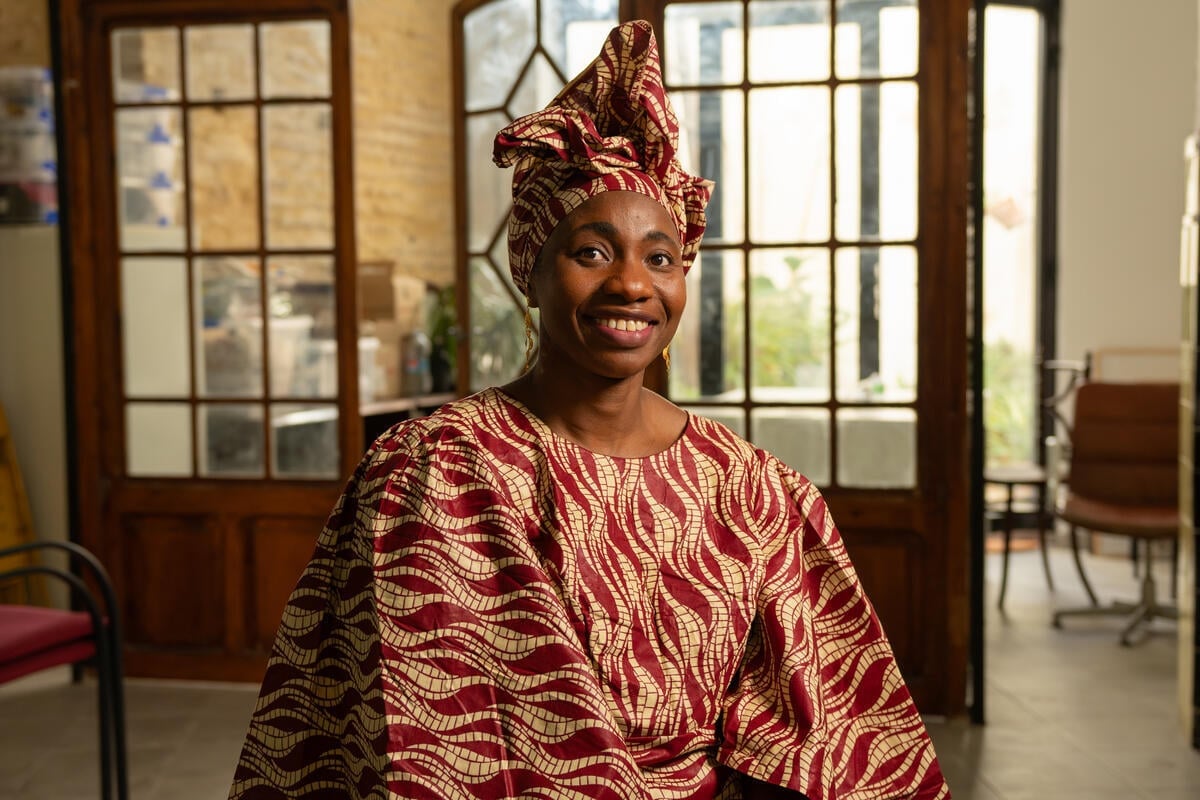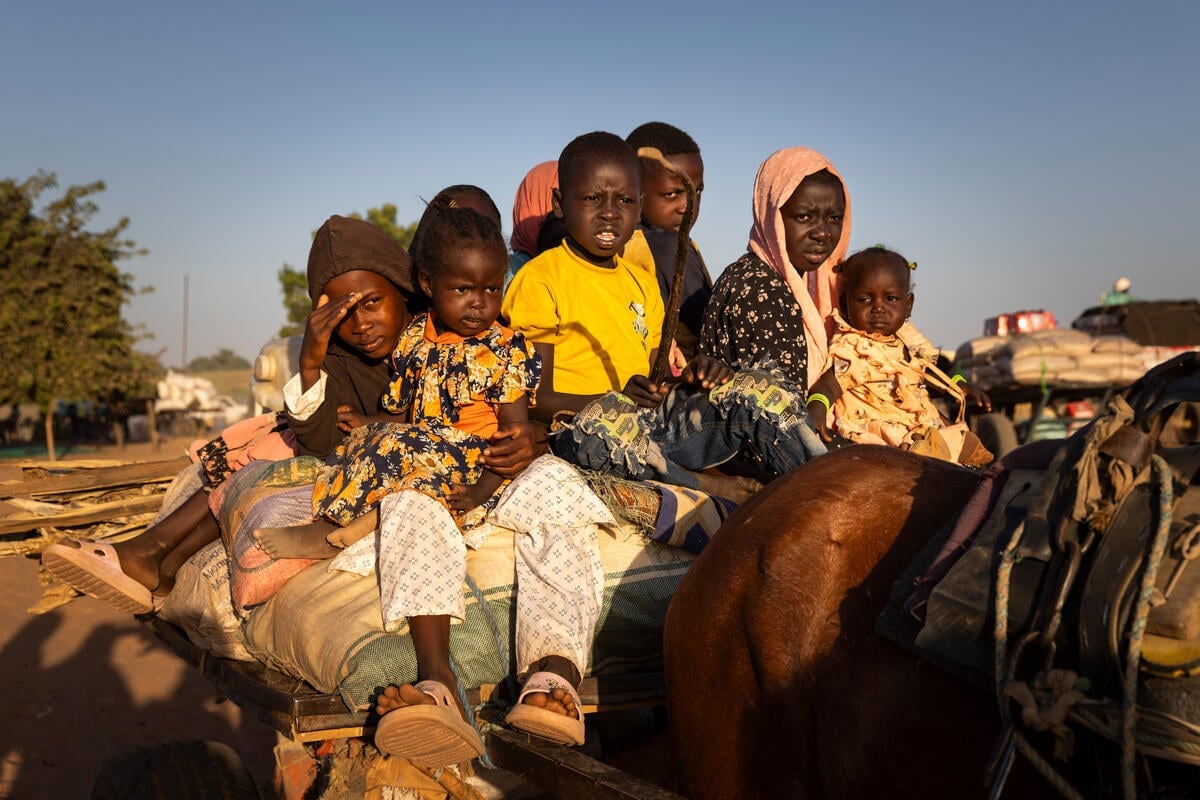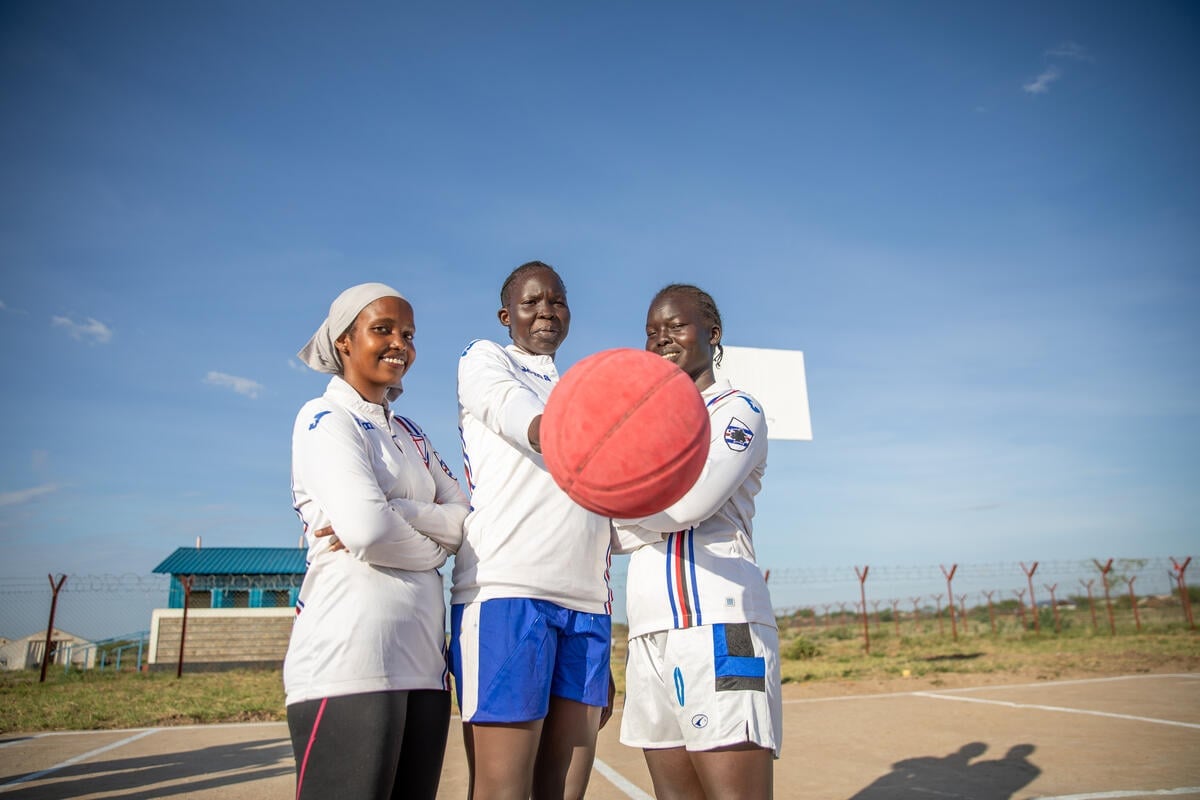As Sudan conflict rages on, health crisis hits displacement camps
As Sudan conflict rages on, health crisis hits displacement camps

Esra Elsayed and her cousin, Nada Jubara, tend to a patient at the clinic they have improvised in their grandfather's home in White Nile State.
Sitting on a plastic chair, Esra uses an old device to measure the blood pressure of a mother while Nada tends to the child on the mother’s lap.
Both women worked as doctors in a hospital in the capital, Khartoum, before fighting broke out in April. They, along with the rest of their family, fled to their grandfather’s house in While Nile State two weeks later and began volunteering their medical skills to help others displaced by the conflict.
“They know that there are doctors here that could help,” said Esra. “So, anyone who suffers from anything – diabetes or headache – would just come saying, ‘My daughter, can you measure my blood pressure, can you see what's going on?’”
“It’s not like an appointment. People come to us at any time – maybe in the morning, maybe in the evening,” adds Nada.
A health system in crisis
As well as forcing over 5 million people to flee their homes, nearly six months of conflict has brought Sudan’s health-care system to its knees. While many health facilities have come under attack and are no longer functioning, others are critically short of staff, medicines, and equipment, making the work of volunteers like Esra and Nada vital.
According to a recent report by UNHCR, the UN Refugee Agency, more than 1,200 children under 5 died in White Nile State alone between mid-May and mid-September due to a measles outbreak combined with high levels of malnutrition.
Hundreds of thousands of people, mainly South Sudanese refugees fleeing Khartoum, have overwhelmed 10 refugee camps in the state. Um Sangour camp, which is meant to host only 30,000 people, is now home to more than 70,000.
At the camp’s only primary health-care facility, the lack of medical supplies and staff has stretched services thin. The shaded waiting area is filled with people, mainly mothers soothing crying children. There are not enough chairs, and many people are forced to stand while they wait to be seen.
Dr. Muwonge Nasur Lubega, a public health officer with UNHCR, said the facility receives at least 700 patients daily, mostly women and children under 5 with respiratory tract infections, diarrhoea, malaria, and, increasingly, measles.
“We have registered an epidemic [of measles] in the camp following the emergency, and this is linked to the congestion and overcrowding in the camp, the poor health, water, and sanitation situation, and limited shelter.”
Hanna Wilson, a South Sudanese refugee who has lived in Um Sangour camp since 2019, is struggling to cope with the loss of two of her children who recently died of diarrhoea and malnutrition.
“My daughter had diarrhoea and was vomiting for two days. On the third day, she passed away,” she said.

South Sudanese refugee Hanna Wilson recently lost two of her young children to health complications.
When her 9-month-old son Macro got sick and refused to breastfeed a month later, she took him to the general hospital in Kosti, five hours away, rather than join the queue at the camp’s health facility. But when Macro’s condition continued to worsen after seven days at the hospital, she took him home.
“He lived for another month. There was no medication here at the health centre. And when I went with my baby at night, there was no doctor. It was closed.”
Rainy season brings further risks
Aid agencies are worried that the current rainy season along with increasing displacement could lead to a further spike in deaths from water-borne diseases such as cholera, more than 500 suspected cases of which have already been reported in other parts of the country.
UNHCR, together with the World Health Organization, other partners and local authorities, is scaling up its response to address the deteriorating health situation, including through measles vaccinations and food and medicine distributions, but resources are extremely limited.
“For 70,000 people in this camp, we are expected to have seven primary health-care facilities,” said Lubega of UNHCR. “We only have one at the moment, and therefore additional funding is required to increase the number.”
The two cousins have been helping alleviate pressure on health facilities by diagnosing illnesses and providing consultations.
“Here [in White Nile State], because the area is next to the river, there is a big presence of mosquitos,” said Esra. “Most people don’t have access to mosquito nets. So, [they] contract malaria, and diarrhoea because of the water.”
If not for the conflict, Esra would be preparing to take her specialization exam in emergency medicine back in Khartoum. Instead, she is helping her new neighbours while living in the same conditions as them.
“You don’t need money to start something,” she said. “You just trust yourself and you can do it, even in these conditions.”
Additional reporting by Moulid Hujale in Nairobi, Kenya
"When I went with my baby at night, there was no doctor."





